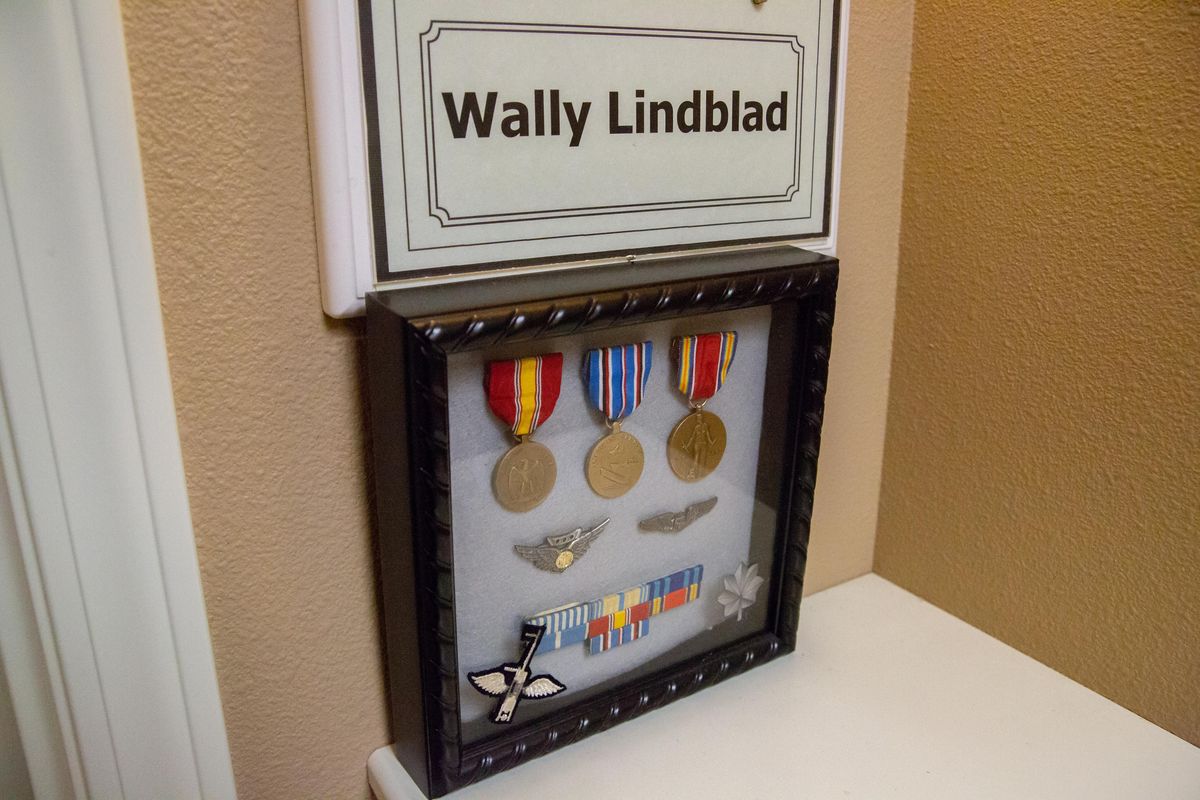Wally Lindblad is frustrated with the care he gets in assisted living. So he’s giving $1 million to WSU.

Waldron (Wally) Lindblad has a button strapped around his wrist that he presses when he needs help. Sitting in his recliner in his apartment at an assisted living facility in Pullman, the 92-year-old Korean War veteran said sometimes it takes 20 to 30 minutes to get help.
“If the time was better, my stress level would be way down,” he said. “I’d be more comfortable.”
That’s not uncommon in senior care facilities, Lindblad said, and he is determined to help. He is donating $1 million to the Washington State University College of Nursing in Spokane to establish the school’s first endowed faculty position; it is aimed at geriatric research and providing continuing education for nursing home care providers.
Lindblad is donating the money on behalf of his wife, Janet, who died in 2011.
“She’d go along with it,” he said.
It’s part of a bigger donation spree – he’s also donating $1 million to the Shriners Hospital for Children in Spokane to provide immediate care for the children there, and another $1 million to the the American Legion’s Legacy Scholarship Fund for college students.
“We are truly thankful,” said Angelique Heinzen, director of development at Shriners Hospital for Children in Spokane. “The money will immediately go to provide medical care for the children.”
WSU will use the money partly on research to rate elderly care providers, then provide training and rate them again to see the difference, said Mel Haberman, who was named to the endowed chair created with Lindblad’s donation.
“We want to do what he suggests,” Haberman said.
“Can you imagine the scholarships that will come out of this?” Lindblad said of his donation. “Can you imagine nurses being more understanding of mental problems?”
Lindblad served in the Korean War as a medical evacuation pilot and flew a team of nurses between Japan and the Korean Peninsula. The planes he flew, C97s, could carry 40 to 60 wounded soldiers at a time, cared for by a team of five nurses.
“They were worked to death,” he said. “I watched them work, and I gave them all the support I could.”
Lindblad retired as a lieutenant colonel in 1978 and followed up his military career with success in securities and real estate investing.
Lindblad wants to see nurses in elderly care homes better able to recognize mental problems. “They have little training in recognizing Parkinson’s, Alzheimer’s and dementia,” he said. He also wants more naturopathic medicine, such as amino acids and cranberry pills, to be used by nurses.
Joyce Griffin-Sobel, dean of the WSU College of Nursing, said Lindblad has specific goals that the school will help carry out, such as training the nursing staff in his own care facility and others in Eastern Washington.
“There’s little development for the staff at nursing homes,” she said. “This money will allow us to expand that.”
Among the issues she wants to focus on is communication.
“We need to keep (patients) verbal. That social interaction is crucial, especially for people with dementia,” she said. She also wants to see better and more screening of cancer for the elderly.
Griffin-Sobel said any school’s first endowed chair is the hardest one to come by. After that, it becomes easier, because people in the community can see the impacts of the research and the outcomes. She envisions future endowed chairs to study cancer and mental health.
Haberman’s WSU business card reads, “Waldron O. & Janet S. Lindblad Distinguished Professorship in Geriatrics,” and he said the research that he will conduct is a huge need.
Haberman remembers when he was a graduate of the first nursing class at WSU, in 1971, and said back then, the school was “in the dark ages.”
He’s now in the process of assembling a team to study geriatric nursing care.
The venture will be a different one for WSU because faculty or students will be training non-WSU-affiliated staff in the elderly care facilities. He expects to see results in three to six months, he said, and after that WSU will start to offer training in rural areas and in cities.
All WSU nursing students now take a one-semester class that focuses on geriatric care, and many are placed in elderly care homes for real-life learning experiences as part of their education. Haberman wants more training for students and is looking to meet with Lindblad for suggestions.